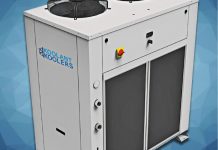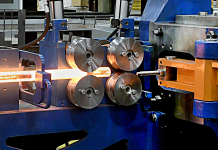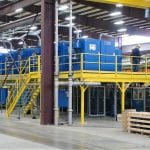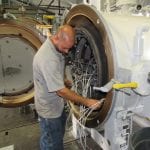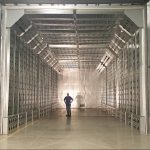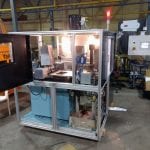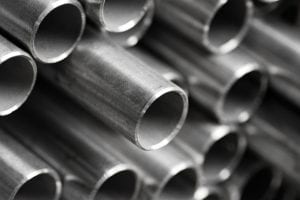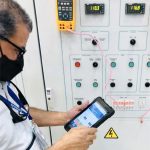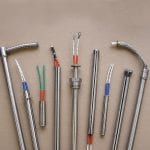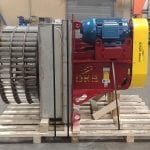Burner systems are a complex arrangement of parts that are integral to the proper combustion within an industrial furnace or oven.
A burner that doesn’t perform optimally can often put a dent in a company’s production and profit, so it’s important for proper industrial combustion that burners are working efficiently, which is where the experts at BDC Inc. come in.
“There are really three aspects we offer to the industry: It’s parts; it’s field service, and it’s engineering services,” said Robert Peart, vice president of sales at BDC Inc. “What that means is we offer industrial combustion expertise to the thermal processing market. What we really pride ourselves on and what we’ve done through our existence is to try and stay in that lane of industrial combustion.”
With more than 60 employees, BDC has the experience and know-how to back up what it brings to the market, according to Peart.
“Everyone at BDC is focused on this niche market of industrial combustion in the thermal heating process,” he said. “If you come to us for parts, for field service, or engineering solutions, that’s really what our value to the market is — we know this industry really well.”

Starting with the burner
For BDC, that expertise starts with the burner, according to Peart.
“The burners are what leads a lot of this business, and that means everything that’s used to control the gas, the fuel, or whatever that burner is burning — whether it’s natural gas, propane, diesel fuel, or some other fuel,” he said. “We supply the valve trains and all the safety components that go into the mechanical delivery of the gas to the burner. We also do the controls panels and any of the electrical control components that go into operating the burner effectively and running your combustion system.”
Focusing on these core components within the industrial combustion market has allowed BDC to keep an eye on what works best, according to Peart.
“Industrial combustion expertise is what we see as our North Star,” he said. “That is the philosophy that we want to continue to try and grow through. We’ve avoided the common temptation in this type of market to try and grow sales by expanding into other industries, other product lines, or other areas of focus. We really feel like where our benefit and what our philosophy for growth is, is to really focus our efforts on heat treating and the industrial combustion market. Industry wide, we have seen that knowledge base for those areas of focus decline over the years, so we are doubling down and really investing in making sure that our service techs, our engineers, our sales engineers — everyone — is very well-trained and very familiar with both industrial combustion products and the applications that they go into.”

Staying competitive
Even though BDC has been in business for almost 80 years, the company continues to look at ways to stay competitive in an established industry, according to Peart.
“I would say in the last 10 to 15 years, what we’ve really pushed as an initiative for us and how we’ve evolved is to grow our field service team,” he said. “We currently have about 25 service technicians located throughout the Midwest and Mountain West regions, and we have really invested a lot of resources in growing that part of our business. We have seen a decline in the experience of combustion service technicians just in this market over the years. There used to be a lot of companies that would offer that. We feel like there are less now, so where we’ve evolved is to grow our service offering and fill that gap where there is a high demand for service, because there are fewer service technicians — especially experienced ones — in the field.”
Working with customers can cover a variety of methods to serve, so Peart said it mainly focuses on what their initial needs may be.
“It does depend somewhat on what they’re looking for,” he said. “Certainly, we can have quick responses if something’s simple like a parts quote. But what we try to do is ask a lot of questions to find out what the problem is that they’re having or what piece of equipment they’re talking about. Ideally, we like to get somebody out on site as quickly as possible to see the application, so we can better understand the challenge that they’re facing.”
That on-site expertise could involve a service technician, a sales engineer, or even someone from BDC’s engineering department, according to Peart.
“We want somebody who understands the applications and the products to get out there and see it to help the customer, but to also understand what the solution could be so we can help them with it,” he said.

Almost eight decades of service
BDC, which stands for “Burner Design & Control,” opened its doors in 1946 when its two main product lines were, at the time, called Eclipse Fuel Engineering and Rockwell Heat Treating Furnaces, according to Peart. Even then, the company was always focused on the heat-treating and thermal processing industry. BDC is headquartered in St. Louis, Missouri, but, over the years, the company has added offices in Kansas City, Missouri, and Denver, Colorado. BDC has had several owners since the beginning, but in 1990, BDC was purchased by Charlie Roth.
“A lot of people who know BDC know Charlie,” he said. “He owned it until 2017, and David Baumstark bought the company from him, and he’s run it since.”
Within the last four years, BDC has continued to expand to make way for more efficient ways to serve its customers, according to Peart.
“We’re really proud of how we’ve grown and expanded our business,” he said. “We’ve added an office in Denver. We’ve actually added about six states to most of our vendor contracts, and we’ve expanded our business successfully over those last four years — leading with that service approach. The service is what really seems to pull the rest of our business and help it grow into these other markets.”

Planning for changes
The thermal-processing industry is a slow-moving animal, but it does invite change eventually. To that end, Peart does see quite a few changes on the horizon for this established sector.
“I’ve not seen a lot of major changes in my 20-year career, but I actually think in the next 10 years, we really could see a lot of change,” he said. “I think the reason for that will probably be driven in large part by carbon-reduction initiatives, either by corporations or government regulations. There seems to be a lot of discussions and a lot of things in the news about the carbon footprint, and that comes back to our industry quite a bit.”
That could bring about changes that include the discussion of alternate fuels for furnaces and ovens, according to Peart.
“You could see hybrid electric heating, and there will certainly be a larger focus on being more energy efficient,” he said. “Even then, you’ll look at which industry or which type of customer will dictate which of those options they go with. I don’t think the whole industry is just going to go one way. I think it’s going to be a blend of a lot of different new approaches to thermal processing.”
IHEA member
To help navigate this possible future, Peart is quick to praise the Industrial Heating Equipment Association (IHEA).
“We are a member of IHEA, and I think IHEA does a great job of allowing us to interact with some of the industry leaders in this market and also keeps us very informed on new technologies and new regulations that can help us understand what the impact is to the thermal-processing market,” he said.
Changes and challenges in the industry are a main part of what keeps Peart excited about the thermal processing market, and he doesn’t expect that excitement to change as he continues at BDC.
“This is really a market that we focus on, and our whole business is thermal processing — that’s really where we play,” he said. “I worked with Honeywell for about 14 years and came to BDC a couple of years ago. I was really excited to start with BDC because of their laser focus on this thermal-processing market. There are so many other industries you could get pulled into very easily. I like that BDC stays very focused on this market, because it’s a fun market to work in. You get to learn how everything’s made, and you’re playing with fire every day. It’s a great industry, and I’ve always enjoyed it.”
More info www.gobdc.com











